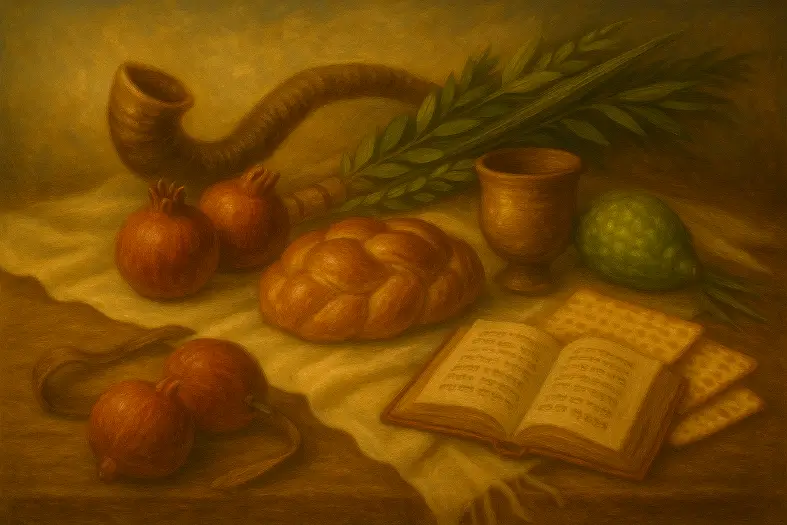


We are commanded to separate a portion of dough, called Challah, and give it to a Kohen.
This mitzvah requires that when kneading dough from the five grains (wheat, barley, spelt, oats, and rye), one sets aside a portion for the Kohen. Known as Challah, this portion is sanctified and given as a priestly gift.
In Temple times, the Challah was eaten by Kohanim in a state of ritual purity. Today, outside of Israel, it is customary to separate a small piece of dough and burn it, since we lack the necessary purity to give it to Kohanim.
The mitzvah parallels Terumah Gedolah from the field but applies at the stage of food preparation. It expresses gratitude for Hashem’s bounty and sanctifies the act of making bread, the staple of life.
Commentary & Classical Explanation:


Represents Emunah—the deep, inner trust in Hashem’s presence, oneness, and constant involvement in our lives. This badge symbolizes a heartfelt connection to G-d, rooted in belief even when we cannot see. It is the emotional and spiritual core of many mitzvot.
Represents the concept of spiritual intentionality, purity, and sanctity—set apart for a higher purpose.
Mitzvot that strengthen communal life — showing up, participating, supporting, and belonging. Community is where holiness is shared, prayers are multiplied, and responsibility becomes collective.
Signifies awe and reverence toward Hashem—living with awareness of His greatness and presence.
Mitzvot that define and deepen the relationship between a person and their Creator. These include commandments involving belief, prayer, Shabbat, festivals, sacrifices, and personal holiness — expressions of devotion rooted in divine connection.

Dive into mitzvos, prayer, and Torah study—each section curated to help you learn, reflect, and live with intention. New insights are added regularly, creating an evolving space for spiritual growth.

Explore the 613 mitzvos and uncover the meaning behind each one. Discover practical ways to integrate them into your daily life with insights, sources, and guided reflection.

Learn the structure, depth, and spiritual intent behind Jewish prayer. Dive into morning blessings, Shema, Amidah, and more—with tools to enrich your daily connection.

Each week’s parsha offers timeless wisdom and modern relevance. Explore summaries, key themes, and mitzvah connections to deepen your understanding of the Torah cycle.